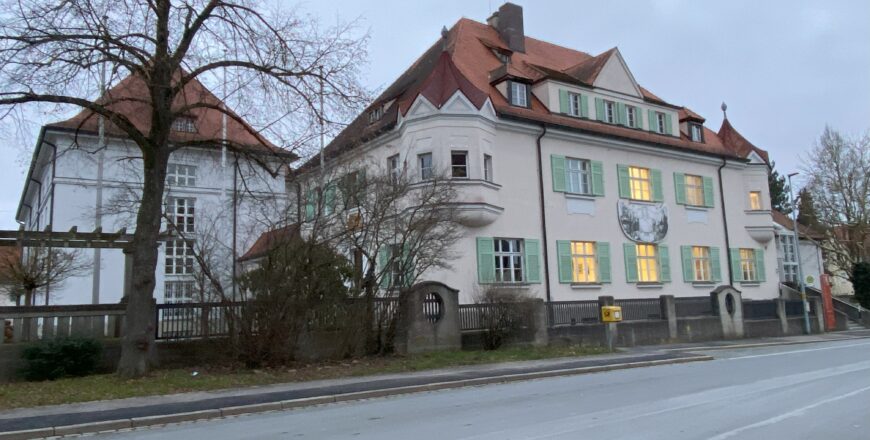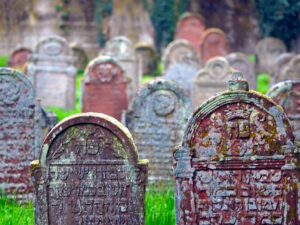German Phase 1: Identify the German Hometown
- Description
- Curriculum
Many Americans claim German ancestry and want to research their ancestors. To extend one’s ancestry into Germany, one must know the town of origin. It is not enough to know they came from Germany or even a specific German state. Phase 1 teaches students how to find their ancestor’s hometown by conducting thorough research using United States sources and utilizing appropriate methodology.
Classes held on Tuesdays, 14 October-11 November, 8:00am-4:00pm Mountain Time.
Week 1, 14 October
History of Germans in the US, 8:30-9:45
Instructor: Debra Hoffman
German Americans are the largest ancestry group in the United States. This session will cover the various immigration waves and settlement patterns of German immigrants.
Geographical Settlement–East Coast, 10:15-11:30
Instructor: Debra Hoffman
Germans have immigrated and settled in America since Jamestown. Their influence can be seen in the cities and towns along the East Coast. This session will discuss the impact and available sources.
Geographical Settlement–Midwest, 1:00-2:15
Instructor: Teresa Steinkamp McMillin
Exploring transportation routes and pull factors, this session discusses major German settlement patterns in the US Midwest.
German Language Skills, 2:45-4:00
Instructor: Teresa Steinkamp McMillin
This session identifies key historical German words found in church records and geographical descriptions. Resources for expanding this knowledge will be included.
Week 2, 21 October
Effective Planning Begins with a Literature Search, 8:30-9:45
Instructor: Debra Hoffman
Effective research planning starts with a literature search to determine what sources have already been found and how they can be leveraged. Learn how to effectively complete such a search and how to build upon the findings while creating a locality guide.
Review Research to Date, 10:15-11:30
Instructor: Teresa Steinkamp McMillin
When searching for a German hometown, clues may be buried in documents already in the researcher’s collection. This session walks the student through a review process in order to plan for next steps.
Sweet Spot Sources, 1:00-2:15
Instructor: Teresa Steinkamp McMillin
This session identifies sources that often name a hometown for a German ancestor. The student should check these resources first.
Using Appropriate German Research Methodology, 2:45-4:00
Instructor: Debra Hoffman
When conducting genealogical research on German immigrants, using appropriate methodology is as important as locating the sources of information. Learn about different methodological processes and how and when to apply them.
Week 3, 28 October
Vital Records, 8:30-9:45
Instructor: Debra Hoffman
Records covering birth, marriage, and death can be some of the best sources for information on origin when researching German immigrants. Coverage of these records will be provided and supported with relevant examples.
Passenger & Emigration Lists, 10:15-11:30
Instructor: Teresa Steinkamp McMillin
This session identifies sources that document German ancestors leaving their old country and also those documenting their arrival in the US or Colonial America.
Naturalization Records, 1:00-2:15
Instructor: Teresa Steinkamp McMillin
Many German immigrants chose to become citizens of the US. This session explores motives and records that document the naturalization process.
Consultations, 2:45-4:00
Instructors: Teresa Steinkamp McMillin and Debra Hoffman
Week 4, 4 November
German Religious History in the US, 8:30-9:45
Instructor: Debra Hoffman
German immigrants brought their religious beliefs and transplanted them in America. The impact of the different religions, including sects, the methodology, and important sources will be covered.
US Church Records, Part 1, 10:15-11:30
Instructor: Debra Hoffman
Church records in the United States are some of the most promising sources for locating the town of origin in Germany. Learning about the different religions and their record-keeping practices will assist researchers in using this source.
US Church Records, Part 2, 1:00-2:15
Instructor: Debra Hoffman
This presentation will continue exploring the various religious denominations and their records.
Consultations, 2:45-4:00
Instructors: Teresa Steinkamp McMillin and Debra Hoffman
Week 5, 11 November
Newspaper Research, 8:30-9:45
Instructor: Teresa Steinkamp McMillin
Research in US newspapers, especially German-language newspapers, can be valuable for identifying a hometown. This session teaches how and where to find these resources.
Using State Department Despatches to Find Your Family’s Hometown, 1800-1906, 10:15-11:30
Instructor: Kenneth Heger, PhD
This presentation covers how to find the death reports, marriage certificates, and estate case files that American consulates in Europe sent to the Department of State and how to use those records to identify your family’s hometowns in Europe.
Using Consular Records to Find Your European Family, 1800-1906, 1:00-2:15
Instructor: Kenneth Heger, PhD
American consulates maintained extensive files to do their work overseas, records that include information the consulates did not regularly include in despatches to the Department of State. This presentation covers how to identify and access those files, and how to mine them to find information about European families, including relatives’ names and where the family lived.
Case Studies for Finding German Origins, 2:45-4:00
Instructor: Teresa Steinkamp McMillin
This session walks through successful cases, highlighting strategies used to find a hometown.
Course Summation, 4:00-4:30
Instructors: Debra Hoffman and Teresa Steinkamp McMillin
This session wraps up the course and provides recommendations for next steps.

Class held on Tuesdays, 14 October-11 November, 8:00am-4:00pm Mountain Time.
Course Coordinators: Debra Hoffman and Teresa Steinkamp McMillin






